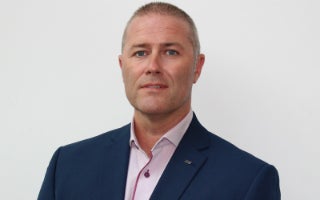Police federation chief accepts Met is institutionally racist, misogynistic, and homophobic
‘Acceptance is the first step to moving on,’ Steve Hartshorn says

Your support helps us to tell the story
From reproductive rights to climate change to Big Tech, The Independent is on the ground when the story is developing. Whether it's investigating the financials of Elon Musk's pro-Trump PAC or producing our latest documentary, 'The A Word', which shines a light on the American women fighting for reproductive rights, we know how important it is to parse out the facts from the messaging.
At such a critical moment in US history, we need reporters on the ground. Your donation allows us to keep sending journalists to speak to both sides of the story.
The Independent is trusted by Americans across the entire political spectrum. And unlike many other quality news outlets, we choose not to lock Americans out of our reporting and analysis with paywalls. We believe quality journalism should be available to everyone, paid for by those who can afford it.
Your support makes all the difference.The head of the Police Federation of England and Wales said he accepts that the Metropolitan police is institutionally racist, misogynistic, and homophobic.
This comes after Baroness Louise Casey’s report on the Met, commissioned after Sarah Everard’s murder, laid bare some of the failings of Britain’s largest police force.
Steve Hartshorn, who was elected the chief of the Police Federation of England and Wales last year, said in an interview with The Guardian that he fully accepted the Casey report. He pointed out that making his personal views public was an act of “leadership”.
The Casey report found there to be “deep-seated homophobia within the Met” and also said women officers and staff “routinely face sexism and misogyny”.
There are people in the Met with racist attitudes, and Black, Asian and ethnic minority officers and staff are more likely to experience racism, discrimination and bullying at their hands, the report said.
“Discrimination is often ignored, and complaints are likely to be turned against Black, Asian and ethnic minority officers,” it said.
“For me, I personally do accept the findings in the report. I represent lots of those people that have come forward to speak. Some of my colleagues will probably not like the fact that I’m accepting there are institutional failings and biases within such a massive organisation,” Mr Hartshorn said.
“But then many will, and [will] go: ‘Well, what’s the harm in accepting it if we understand that it’s not labelling every officer as institutionally racist, sexist, homophobic, corrupt?’”
His colleague, Met police commissioner Sir Mark Rowley, however, has not accepted Baroness Casey’s “deeply troubling diagnosis” in full.
He said the force may have systemic failings, but refused to adopt the labels of institutional racism, misogyny, and homophobia.
Mr Hartshorn’s comments have come in the wake of the 30th anniversary of Stephen Lawrence’s murder.
Lawrence, an 18-year-old Black aspiring architect, was attacked by a group of young white men as he waited at a bus stop in Eltham, southeast London on the evening of 22 April 1993.
Five men were arrested, but it took until 2012 before two of them, David Norris and Gary Dobson, were given life sentences after being found guilty of murder.
Baroness Doreen Lawrence, Lawrence’s mother, later said the force is “rotten to the core”.
The case later led to a report by Sir William Macpherson which detailed the failings of the police force that let Lawrence’s killers free and was the first official report that labelled the Met force racist in 1999.
“There’s been clear failings in leadership... to address the very issues that should have been dealt with, and consigned to history,” Mr Hartshorn said.
“It could be argued that, yes, it manifestly has got worse because, you know, 25-30 years on, things don’t seem to improve and we’re still having these horrendous issues.
“If it’s institutional failings of racism, sexism, homophobia, that has to sit at levels of senior leadership throughout the organisation.” He also called for a “mindset shift” to move on from the problems plaguing the force for decades.
“Acceptance is the first step to moving on,” he said.



Join our commenting forum
Join thought-provoking conversations, follow other Independent readers and see their replies
Comments